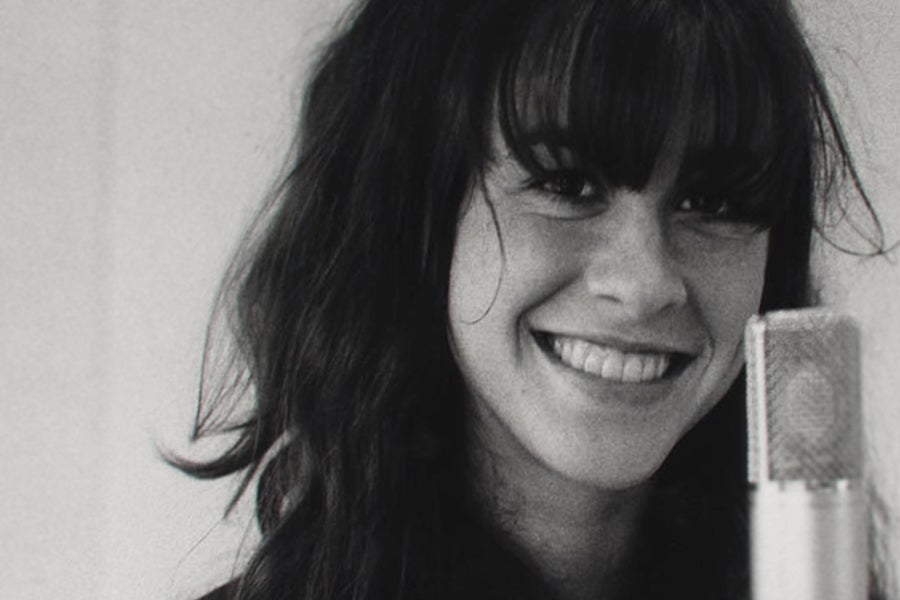It should have been the kind of moment film festivals are made for: one of Canada’s biggest rock stars standing in front of a sold-out crowd at an opera house in Toronto, welcoming them to the premiere of a glowing documentary about her landmark album Jagged Little Pill. But instead, Alanis Morissette spent the afternoon before its premiere at this year’s Toronto Film Festival trashing the movie and accusing director Alison Klayman of betraying her trust.
News that Morissette might not attend the screening leaked out over the weekend, followed by a statement on Tuesday that confirmed the rumor. She made the reason behind her decision to skip clear: “I was lulled into a false sense of security and their salacious agenda became apparent immediately upon my seeing the first cut of the film,” Morissette said. “This was not the story I agreed to tell.” She went on to accuse Jagged of including “implications and facts that are simply not true,” although it did not specify what those implications are.
Klayman, for her part, has remained diplomatic, perhaps hoping to coax her subject back into the fold before Jagged’s HBO debut on Nov. 19. At the premiere, the director presented herself as lifelong fan, whose first CD ever was Jagged Little Pill, and described making the film as “a total honor and privilege.” In lieu of allowing questions after the screening, the festival’s organizers directed attendees to a pre-recorded Q&A on the festival’s website.
Neither Morissette nor Klayman has specified which specific parts of Jagged the singer considers contentious, but media coverage has focused in on the star’s comments about the men who made sexual advances on her early in her career, beginning as early as her mid-teens. “At 15,” she says early in the film, “all bets were off.” She goes on to describes how, during the pre-Jagged Little Pill period when she made a bid for teen pop stardom in Canada, she became immersed in an environment where there was “an element of a lack of hyper-protection.” When she was as young as 10, Morissette says in the film, her parents would stick her on a plane and ask the adult in the next seat to keep an eye on her; as a teenager, she would often remain in the studio with her male producer until 3 in the morning. When she was left alone with a man, Morissette says, there would often come a moment when she felt as though “the camera would go Dutch angle”—meaning to tilt unnervingly to one side—and she knew what would happen next.
Later in the movie, the singer gets more explicit about these traumas, after telling Klayman, “I’m gonna need some help because I never talk about this shit.” Although she does not name names or describe specific encounters, Morissette does say that after “years in therapy,” she’s come to the conclusion that numerous encounters she had long told herself were consensual were not. “Now, I’m like, ‘Oh yeah, they’re all pedophiles. It’s all statutory rape.’”
Despite presumably going on the record with all of these stories for the film, Morissette has since accused Klayman of taking advantage of her in “a very vulnerable time (while in the midst of my third postpartum depression during lockdown).” But the only time she visibly bristles on-camera is when the director raises the subject of the all-male band that toured behind her for 18 months supporting Jagged Little Pill. Morissette describes her band, which included current Foo Fighters drummer Taylor Hawkins, as a surrogate family who, for the most part, bonded with one another once it was clear that none of them would be romantically involved. But she was clearly outraged when she found out that the band typically reserved a room on the far side of the venue for having sex with her female fans. (The musicians now seem properly chagrinned, with bassist Chris Chaney admitting in the doc that they were all “scoundrels looking to get laid.”) And the singer seems particularly outraged by the suggestion that some of them might have bristled at not getting to share her spotlight—although the issue is raised in such a way that it’s not clear if she’s talking about a specific member from that touring band or a different one—or any number of resentful men in general. It would be a stretch to call this part of the movie “salacious,” but it’s the passage when it seems most uncomfortable, as Klayman tries to discuss an idea she doesn’t quite have the footage to document.
Documentaries about celebrities are often controlled by their subjects, and music documentaries perhaps most of all; holding the copyrights to their songs effectively gives them final cut. (It might strengthen Klayman’s hand that HBO, which produced Jagged, has the same corporate parent as Warner Bros., which owns Jagged Little Pill.) And in Jagged itself, the issue of Morissette’s control over her own image is never far from the discussion; she once scrapped an entire Rolling Stone cover shoot after the fact because she was unhappy with the wardrobe provided, then re-did the photos in her street clothes. Klayman, whose last movie, The Brink, was a damning full-access portrait of Steve Bannon, is not the kind of filmmaker to give up creative control, and it’s to Morissette’s credit that she allowed it—right up to the point of a final cut she’s now vocally unhappy with. And it’s to Klayman’s credit that, even while approaching an artist she’s revered since childhood, she’s standing her ground.
